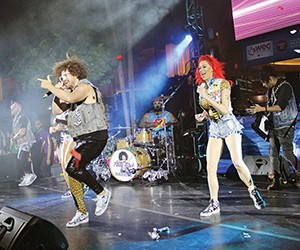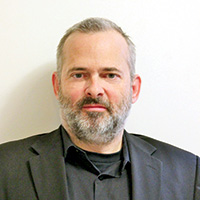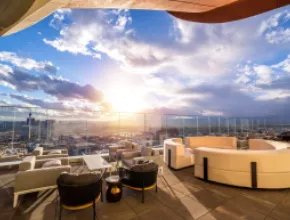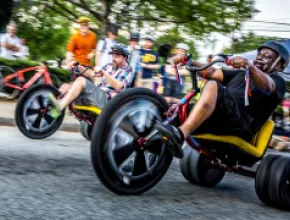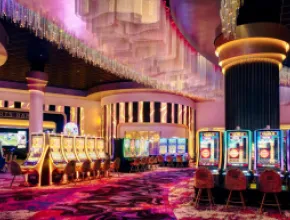It’s official. Millennials, overtaking Baby Boomers by 75.4 million to 74.9 million as of April 2016 U.S. Census Bureau population estimates, are now the largest living generation in the country, according to Washington, D.C.-based Pew Research Center. Millennials, defined by Pew as those born between 1981 and 1997, also now dominate the American workforce.
Once, generations were quantified by 20-year spans. Arriving in the Internet and digital ages, Millennials have rewritten that rule and others, including the marketing playbook. It now appears, however, that the chase for Millennial market share to date has just been the warm-up for the bonanza ahead.
According to Accenture, annual Millennial spending in the U.S., currently valued at around $600 billion, is poised to hit $1.4 trillion by 2020. Jon Fraser, communications manager for leading digital customer research company iPerceptions and himself a Millennial, blogged about the opportunity.
“We’re currently a generation on the precipice of really mattering in economic terms,” he wrote. “Millennials are already one of the largest generations in history, and we’re about to move into our prime spending years.”
With “experience” (see “Go Live!” sidebar, page 50) foremost in the Millennial mindset, the meetings, hospitality and travel industries are uniquely positioned to profit from this expanding economic horizon, and gaming destinations, experiential at heart, are already drawing Millennials in spades. In Las Vegas, Atlantic City and other U.S. gaming destinations, DMOs, resort-casinos and other stakeholders face Millennial customers every day. It’s a frontline view that’s revealing compelling new realities about Millennials. The bottom line? As the largest consumer age group in history now matures into business and meetings industry leadership roles, the “lead generation” represents an opportunity not to be missed.
Adaptive Measures
Las Vegas, “Entertainment Capital of the World” and global meetings leader, offers a singular universe for experience-seekers of all ages. As Chris Meyer, vice president of global business sales for the Las Vegas Convention and Visitors Authority (LVCVA) explained, this helps the destination solve the unique challenge of marketing to the Millennial customer.
“Representing 22 percent of our 42.3 million total visitors in 2015, Millennials tend to spend less than other generations, averaging $270.50 on food and drink, $114.19 on shopping and $50.70 on shows and entertainment,” Meyer said. “Yet, they spend more on experiences and sightseeing, and as the technologically savvy ‘sharing’ generation, we understand the far-reaching effect their social media usage has in indirectly marketing Las Vegas. Knowing this, and to meet their needs, which range from budget-friendliness and satisfying F&B options to green efforts and social responsibility, we are transforming the destination accordingly.”
The LVCVA successfully targets Millennials via social media campaigns, and now, virtual reality technology.
“Millennials want to be engaged, rather than ‘talked to,’ and so our new Vegas VR destination marketing app offers an excellent way to ‘experience’ Las Vegas before arriving here,” Meyer said.
Just as Vegas convention centers and meeting venues continually renovate, upgrade and expand, the destination’s resorts remain focused on enhancing their culinary, entertainment, technological and other amenities.
“Planners and venues around the destination understand that meetings must have significantly different setups to maintain Millennial engagement, especially as their presence at conventions and meetings increases with promotion into decision-making roles within their industries,” Meyer said. “As we continue to provide planners with expert advice about Millennial options in town, these transformations have ultimately made the Las Vegas landscape even more robust and well-rounded.
Meyer added that Millennial planners see Las Vegas as offering a strong value proposition.
“They keep the destination top of mind due to its ability to host large meetings ‘under one roof’ at an excellent price point,” he said.
Commanding most of the Strip between them, Caesars Entertainment and MGM Resorts International have deep insight into the Millennial personality.
Michael Massari, Caesars Entertainment’s senior vice president of national meetings and events, believes that what applies to Millennials applies to all generations.
“True to planners before them, Millennials want to make strong and meaningful industry connections,” Massari said, with Caesars’ properties from Lake Tahoe to New Orleans affording him coast-to-coast perspective. “Taking corporate social responsibility (CSR) efforts into strong consideration, they want to work with organizations that have a conscience and make a difference in the community, and partner with people who are invested in their goals and with whom they can engage in relationships and not merely transactions.”
He also finds that catering to Millennial tastes, naming “wellness and high-quality food as especially important,” is enhancing both Las Vegas and the meetings industry overall.
PageBreak
“Millennials expect what we all expect from meetings—the newest technology, the most engaging speakers, innovative and interactive learning experiences, and exciting ways to network and connect,” Massari said. “Offering the best experiences, then, is how we will continue to change and grow our industry. Our new CEO, Mark Frissora, understands that Millennials are changing the Las Vegas experience, and so we’ve continued to transform our properties to meet their expectations.”
Opened in 2014, The LINQ Hotel & Casino and adjacent LINQ Promenade exemplify this next-generation approach. Featuring state-of-the-art technology, 2,253 modern rooms, 63,000 square feet of highly flexible meeting space and the first outdoor dining, retail and entertainment district on the Strip, The LINQ was a leader in introducing self-check-in kiosks and innovative programs like in-room fitness carts. The latter comes with yoga mats, stability balls, fitness discs and foam rollers. Guests can also take yoga classes 550 feet above the Las Vegas Strip on the High Roller, a 550-foot-tall observation wheel with 28 glass-enclosed cabins.
Caesars is also staying current with a sweeping modernization and technology upgrade of some 4,800 guest rooms at Planet Hollywood, Paris Las Vegas, Harrah’s Las Vegas and perpetual trendsetter Caesars Palace, which celebrated its 50th anniversary in August.
Millennials may be wedded to their smartphones and digital devices—but not to the exclusion of human contact.
“Millennials get the message of the Meetings Means Business Coalition—they want meaningful connections and appreciate face-to-face engagement,” said Massari, a coalition member. “That means it’s important to make the meeting environment more engaging and interactive than ever to facilitate those personal connections, which can affect everything from the choice of speaker to the furniture setup.”
Connection is key to future progress, Massari added.
“As our industry keeps innovating, creating an atmosphere for participants of every generation to connect will continue to reshape where, when and how we meet,” he said.
Michael Dominguez, senior vice president and chief sales officer for MGM Resorts International, co-chairs the Meetings Means Business Coalition and has guided its development since inception. His similarly expansive Millennial perspective encompasses properties ranging from preeminent Las Vegas resorts such as ARIA, Bellagio and Mandalay Bay to the AAA Four Diamond Beau Rivage Resort & Casino in Biloxi, Miss., and will soon include the $1.3 billion MGM National Harbor in Maryland, slated to open in late 2016, and the $950 million MGM Springfield in Western Massachusetts, targeting a September 2018 debut.
“Millennials desire involvement and have a higher purpose for change at a very young age,” he said. “This greatly complements the Meetings Means Business movement, which works on speaking with one voice and building an army of meetings industry evangelists.”
Dominguez believes the ability to activate the social networks of this generation is a huge advantage in pushing a message and rejects the image of the disconnected Millennial.
“Our industry research reveals that in many ways, we have over-thought the drivers for the meetings industry,” he said. “Millennials expect networking, professional development and mentorship opportunities from meeting engagements…just like prior generations.”
The change being driven today is much more about the results and productivity generated by the meeting, according to Dominguez.
“For instance, networking for Millennials does not mean the opportunity to mingle with 1,000 people, but ‘I know the 10 people I need to see at a meeting—how will you help me connect with them?’” he said. “Flexibility is another overall trend, in terms of on-demand content, post-program accessibility, virtual opportunities to participate and much more ‘white space’ in the agenda.”
Dominguez also posed the following reckoning about Millennials and technological change.
“Millennials are certainly the benefactors of emerging as a large generation during a technology revolution,” he said. “Yet, some behaviors we credit with one generation or another are instead most likely driven by rapid change and innovation in a global economy. Take virtual meetings, for example. Rather than impacting face-to-face attendance, they have expanded overall audience participation and are presently at an all-time high. All generations benefit, but is that a generational story or more about an opportunity that did not affordably and easily exist 10 years ago?”
He added that the conversation is really about more mature Millennials.
“It’s a mistake to not separate older Millennials (28 to 35 years old) from younger Millennials,” Dominguez said. “The older set is now on their own and in their careers, and that is the main driver of similar wants and needs to other generations.”
Still, there’s no denying Millennial influence and impact.
“One of the biggest travel trends we are currently experiencing is explosive travel agent growth,” Dominguez said. “Surprisingly—and again we all got it wrong—the largest and fastest-growing segment utilizing travel agents is Millennials.”
At 22 percent of overall visitors, Millennials may currently “under-index” in Las Vegas, but in MGM’s view, that will change in coming years as younger members “grow” into the market from an age and income standpoint. In the meantime, Vegas continues to “over-index” with Millennial magnets.
PageBreak
Vegas Unbound
From sustainability to sizzling nightlife, Las Vegas has the Millennial agenda covered.
According to its 2016 Corporate Citizenship Report, Caesars Entertainment generates “$4.4 million of contributed value for every $10 million in revenue, triple the estimated average of U.S. corporations” through initiatives including its CodeGreen environmental strategy, employee community service and diversity and inclusion measures.
MGM, the first gaming company to voluntarily declare a formal diversity initiative, back in 2000, also prioritizes CSR, including community engagement and sustainability. This summer, the restaurant corridor at The Park, MGM’s new eight-acre outdoor dining and entertainment district, became the company’s seventh LEED Gold-certified venue, adding to 15 million-plus square feet of LEED Gold-certified space within its portfolio.
As a Millennial-ready address for live experiences, The Park features 16 tree-like shade sculptures that double as color-changing art installations; the 40-foot-tall “Bliss Dance” sculpture of a dancing woman from the 2010 Burning Man festival; the 20,000-seat T-Mobile Arena (LEED Gold registered); and the Monte Carlo resort, which MGM is reinventing as two new properties, The Park MGM and the boutique NoMad Las Vegas. The $450 million project, slated for completion by late 2018, is part of a long-term strategy to re-imagine MGM properties for the next generation.
Like the nightly beam of light emanating from MGM’s Luxor Las Vegas, Millennial beacons radiate across the Vegas landscape, from high-powered nightclubs like nationally top-ranked Hakkasan Las Vegas at the MGM Grand, OMNIA at Caesars Palace and Drai’s at The Cromwell, to the swimming pools at Mandalay Bay, LINQ and the Flamingo, to massive outdoor happenings such as Rock in Rio and the Electric Daisy Carnival, which celebrated its 20th anniversary in June. Advanced tech amenities include MGM’s pioneering in-room Crave tablet, while immersive dining experiences are found in the noodle-tossing demonstrations and kinetic “Moon Art” ceiling sculpture at the new Mr Chow restaurant at Caesars Palace. And Cirque du Soleil (see “Beyond the Ticket” sidebar, page 36) is the consummate arbiter of authentic live experiences.
The ever-expanding Las Vegas universe has Millennial appeal in every corner. With its vintage vibe, expanding Arts District and three-day Life is Beautiful music, arts, culinary and inspiration festival in September, resurgent Downtown Las Vegas is made to measure for experience-seeking Millennials, with the D Las Vegas Hotel and Casino among the neighborhood’s go-to meetings and party headquarters.
The D’s 11,000 square feet of freshly tuned space encompasses the Detroit Ballroom, the outdoor Traverse City Patio and across the street, the 85,000-square-foot outdoor Downtown Las Vegas Events Center. Party options include the Man Cave, the 1,000-foot LONG BAR and nightly entertainment at “down and dirty” Jokesters Comedy Club.
Millennials will find a ready off-Strip home at the M Resort Spa Casino in Henderson.
“Appealing venues for Millennials include our DayDream Pool Club, swanky wine cellar Hostile Grape and Jayde Fuzion for sushi and Asian specialties, all of which are available as meeting spaces for groups,” said Leslie Peterson, director of marketing and communications at the property. “With their preference for teambuilding events, we have helped Millennial groups organize poker or slot tournaments on the casino floor, with training from our dealers.”
Other events have been just as creative and engaging, according to Peterson.
“Another group hired Richard Petty Driving Experience to create a ‘pit stop’ event, where the fastest team to complete tasks, including changing the tires and refueling the vehicle, won a prize,” she said. “We also organized an on-property scavenger hunt and morning poolside fitness classes for an under-35 sales group.”
From Native American casinos (see “The Vibe in the Tribe” sidebar, page 40) to the Northeast and Mid-Atlantic to the Caribbean, Millennials figure prominently in the ever-expanding U.S. gaming market.
Surging Tide
While still challenged on the gaming front, Atlantic City has no issues attracting Millennial customers.
“The Millennial market is quickly emerging on the scene as an economic powerhouse, one that comes to Atlantic City for much more than gaming,” said Jim Wood, president and CEO of Meet AC. “Our casino properties have adeptly responded by utilizing entertainment as a primary driver on weekends, with new Millennial-targeted product development, including high-energy nightclubs, top DJ talent and pool parties.”
Adding beachfront concerts to the mix and aggressively pursuing action sports events like the Atlantic City Color Run and Red Bull Global Rallycross continues to attract a Millennial surge to Atlantic City, he added.
Social media is the natural marketing spearhead.
“Our team has assembled integrated digital content packages that expand the reach of our meetings-specific offerings on Twitter, Instagram, Snapchat, Facebook and LinkedIn, all targeting the Millennial market,” Wood explained. “With increasing peer-to-peer connectivity through social media during shows, we also strongly encourage our meeting and convention groups to communicate to their audience in real time using convention apps and social media.”
Wood said another Millennial trend is groups creating smaller gathering spaces for enhanced networking, including refashioning general session seating with sofas, reclining chairs and high-top tables.
As the 2,000-plus participants in MPI’s 2016 World Education Congress discovered back in June—many experiencing Atlantic City for the first time—the “Casino by the Sea” has the tools and the talent for major events. Key venues, including the new $125 million, LEED-certified Harrah’s Atlantic City Waterfront Conference Center and The Pool After Dark at Harrah’s Resort Atlantic City, fostered the very environment that Massari (the conference center is his baby) spoke of earlier, one that is conducive to participating, having a voice, connecting and creating relationships.
On opening night, all delegates partied like Millennials at Bally’s Beach Bar, setting the tone for a resoundingly successful event. (MPI reported 96 percent “Overall Conference Satisfaction.”) Perhaps that’s the ultimate cross-generational benefit of Millennial culture—taking care of business while having fun.
Tropicana Atlantic City is among the casino-resorts adeptly evolving with the times.
“With buying power projected to reach $10 trillion over their lifetimes, Millennials are essential to the success of the Atlantic City visitor market,” said Jim Ziereis, the property’s assistant vice president of hotel sales, citing the figure from a 2015 Forbes article. “Staying relevant with this generation means keeping pace with them, and so perhaps the most important way Tropicana stays engaged with Millennials is by hiring them in our mix. Adding their unique skills and talents to our workforce enables us to anticipate trends in today’s rapidly changing, technology-driven world.”
Tropicana’s Millennial-centric lures include the TropWorld casino app and on the casino floor, hybrid electronic table games that encourage social interaction. The Havana-inspired Quarter gives Tropicana a competitive edge with Millennials with its plaza of dining, nightlife and entertainment concepts, including the hot new nightclub Kiss Kiss A Go-Go from nightlife impresario Ivan Kane. Just off the casino floor, Chickie’s and Pete’s Crab House and Sports Bar wins Millennial fans with 50-plus TVs, a generous craft beer list and interactive gaming.
“From beer and bacon theme weeks to whiskey festivals and summer fireworks displays, our event calendar is packed with Millennial draws,” Zieris said. “Our new AtlantiCare LifeCenter Fitness caters to this generation’s more personal approach to fitness goals, while our new partnership with Montreal’s world-famous Moment Factory is taking our free daily Multimedia Light & Sound Show to a dazzling new level. Knowing that Millennials appreciate fresh thinking, we will continue to evolve our product set.”
Also staying ahead of the curve is Resorts Casino Hotel.
“We continually evaluate ways to offer Millennials the best experience in meetings, gaming and entertainment,” said Mark Giannantonio, president and CEO of the property. “Take our new state-of-the art conference center, for example. Featuring 12 conference rooms where more than 500 attendees can wirelessly connect multiple devices simultaneously while sharing screens with each other and even colleagues in remote locations, the technologically advanced venue was designed with Millennials especially in mind.”
Another astute investment was the $35 million Jimmy Buffett’s Margaritaville Entertainment Complex in 2013, which includes the LandShark Bar & Grill, Atlantic City’s only year-round beach bar. Millennials also have the sleek i-Gaming Lounge, featuring gaming kiosks and communal tables.
Acquired by MGM in August, the Borgata Hotel Casino & Spa maintains its top spot in the Atlantic City market by continually evolving its appeal, including Millennial-centric investments like the new $14 million, 18,000-square-foot Premier Nightclub, which opened in April.
PageBreak
Millennial Matters
Across the ever-expanding and competitive gaming market, operators must keep the Millennial customer—their profound influence on other generations and the marketplace as a whole now undeniable—top of mind. Dovetailing with the industry shift into non-gaming products first championed by Las Vegas, resorts far and wide are transforming for the generation “on the precipice of really mattering in economic terms.”
At Valley Forge Casino Resort near Philadelphia, for example, Valley Beach is a 22,000-square-foot seasonal poolside club, with amenities including a beach created from 50 tons of imported sand, private cabanas, an open-air bar, poolside dining, outdoor yoga, food trucks and live entertainment. Host venue for the Valley Forge Music Fair, the resort, offering 100,000-plus square feet of meeting space, also has dynamic nightlife, dining and entertainment concepts, plus bachelor and bachelorette party packages.
Acquired by the South Florida-based Seminole Tribe of Florida in 2007, Hard Rock International encompasses cafes, hotels, casinos and other assets in 71 countries around the globe. Only the Seminole Hard Rock Hotel & Casinos in Hollywood and Tampa, Fla., are Tribe-owned; all other Hard Rock Hotels & Casinos, including Las Vegas, presently finishing an 18,000-square-foot convention center expansion, are Hard Rock International licensees. These include the all-inclusive Hard Rock Hotels (sales and marketing by AIC Hotel Group), comprising three beachfront resorts in Mexico (Cancun, Vallarta and Riviera Maya, plus Riviera Cancun and Los Cabos, scheduled for 2018), and in the Dominican Republic, Punta Cana.
At the Punta Cana property, the world’s first all-inclusive Hard Rock Hotel, it’s “Welcome to the Jungle” for pleasure-seeking Millennials. The property features Vegas-style gaming; live music events; the event-capable 14,000-square-foot, two-level ORO Nightclub; the Rock Spa; and 13 luxurious pools with swim-up bars and waterslides. Other highlights include 65,500 square feet of meeting space; the Rock Star Suite for VIP casino guests; and The Sound of Your Stay, Hard Rock’s signature hotel and casino guest amenity program comprising complimentary music downloads, Fender guitars and headphones for in-room jam sessions and DJ equipment for spinning and mixing music like pros in the comfort of their room.
“From an event and meetings perspective, we cater to all generations, including Millennials,” said Kevin Edmunds, vice president of meeting and incentive sales for the AIC Hotel Group. “Through trend research, we are able to narrow in on a variety of generations by offering experiences that are relevant to a range of age groups. At the heart of the AIC properties, where we concentrate on providing meeting opportunities in destinations that can be enjoyed on a leisure level as well, are music-focused, unique experiences for which we find that Millennials, comprising a major portion of that business, have great enthusiasm.”
By keeping cuisine, technological advances, entertainment and other items up-to-date, the Millennial customer tends to stay attracted, Edmunds added.
Set for a late 2017 debut, The Hard Rock Hotel & Casino Santo Domingo will become the brand’s second hotel-casino property in the Dominican Republic but will not be all-inclusive.
Creating the Millennial Brand
Wherever you are on the map figuring out where gaming, meetings and Millennials converge, consider this advice from best-selling business writer and Forbes.com contributor Micah Solomon: “The crux of the matter is this,” penned Solomon in a 2015 blog. “Millennials don’t necessarily see a clear boundary between the customer and the brand, the customer and marketer, and the customer and service provider. Alex Castellarnau at Dropbox…put it to me this way: With Millennials, ‘a new brand, service or product is only started by the company; it’s finished by the customers. Millennials are a generation that wants to co-create the product, the brand, with you. Companies that understand this and figure out ways to engage in this co-creation relationship with Millennials will have an edge.’”



